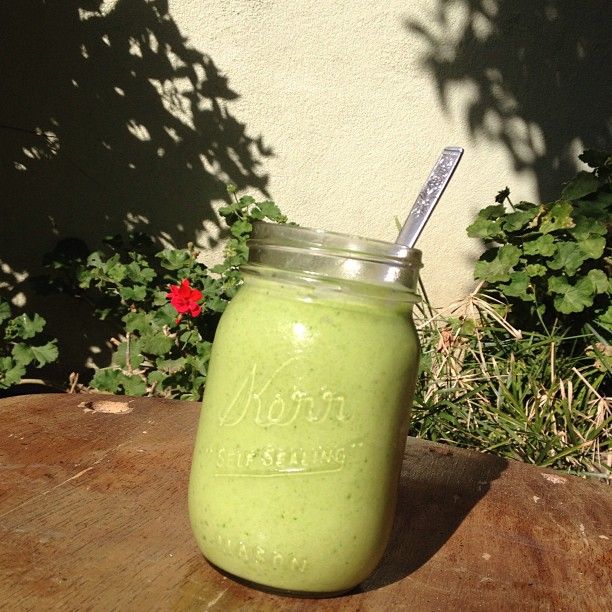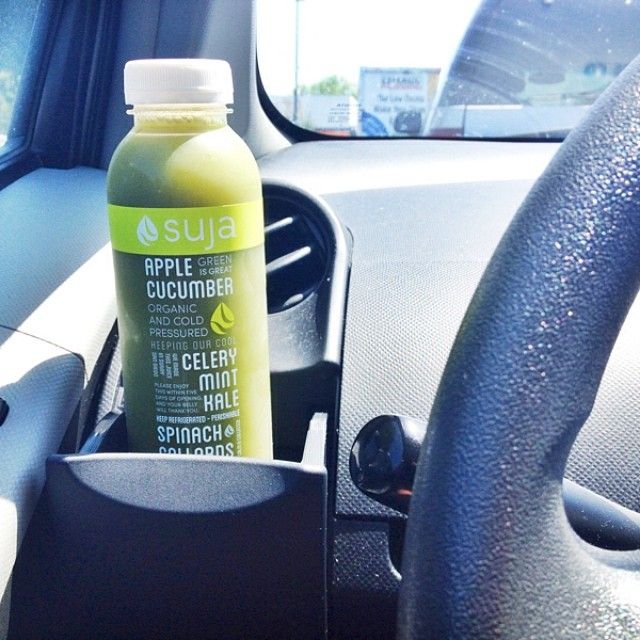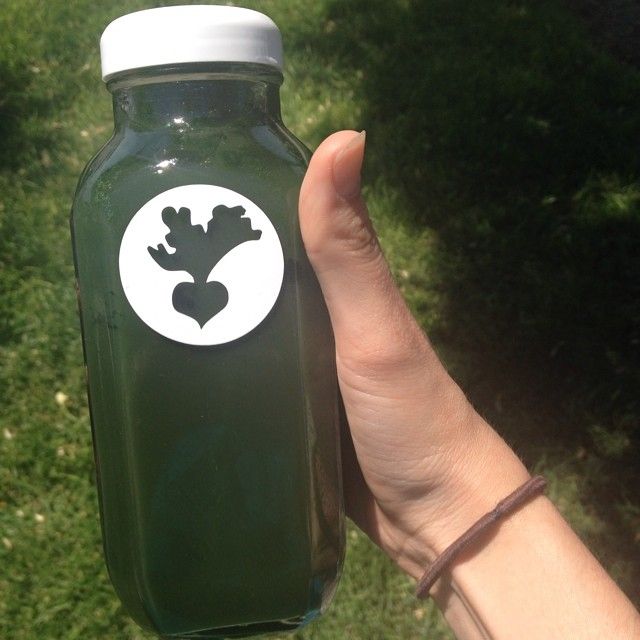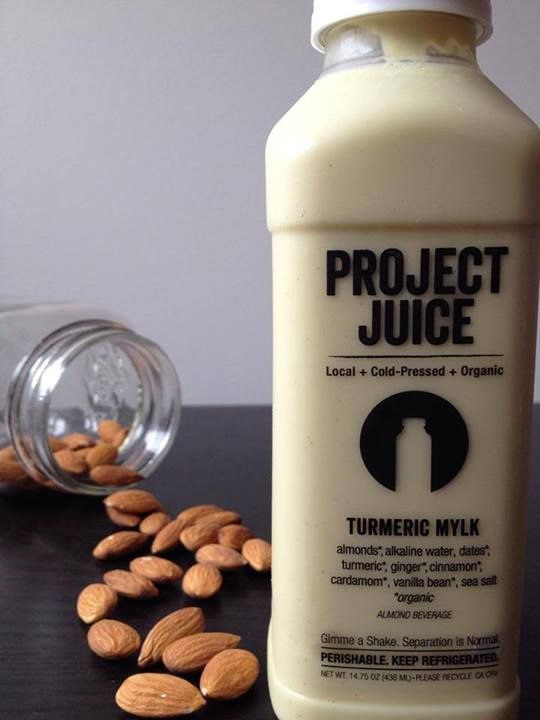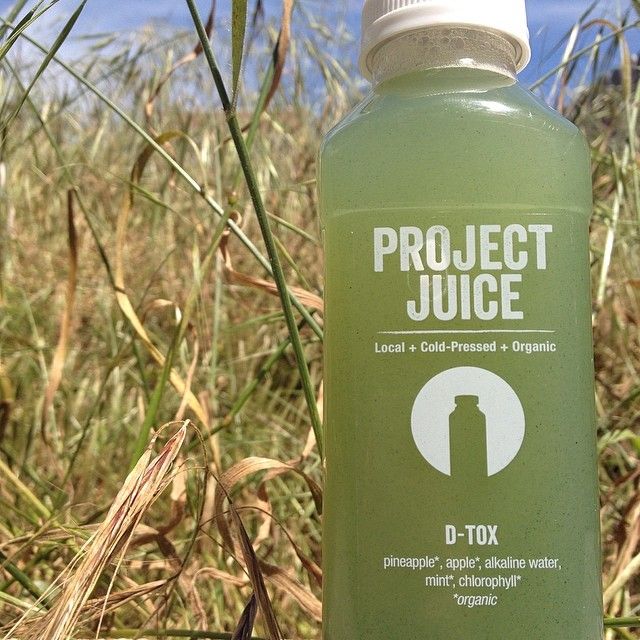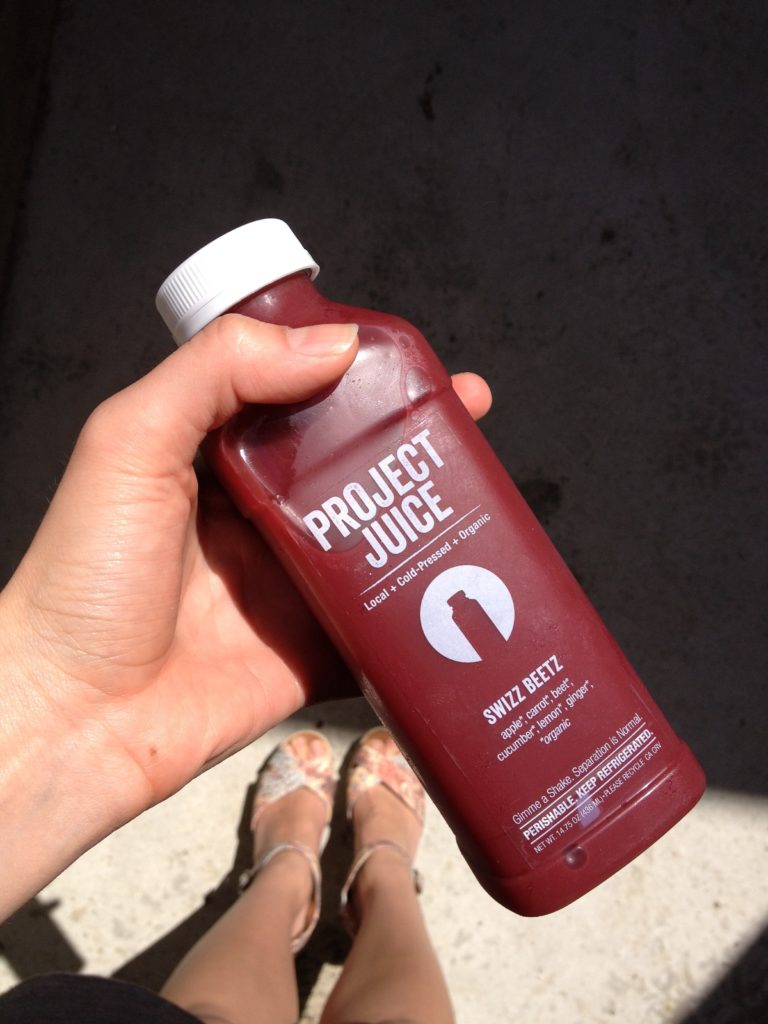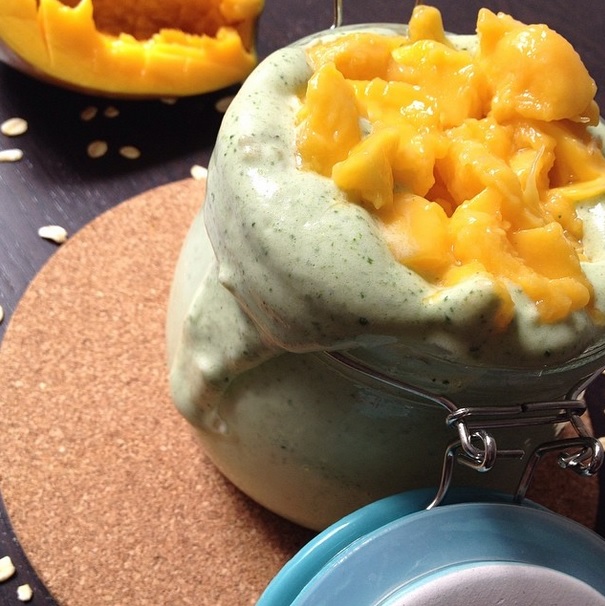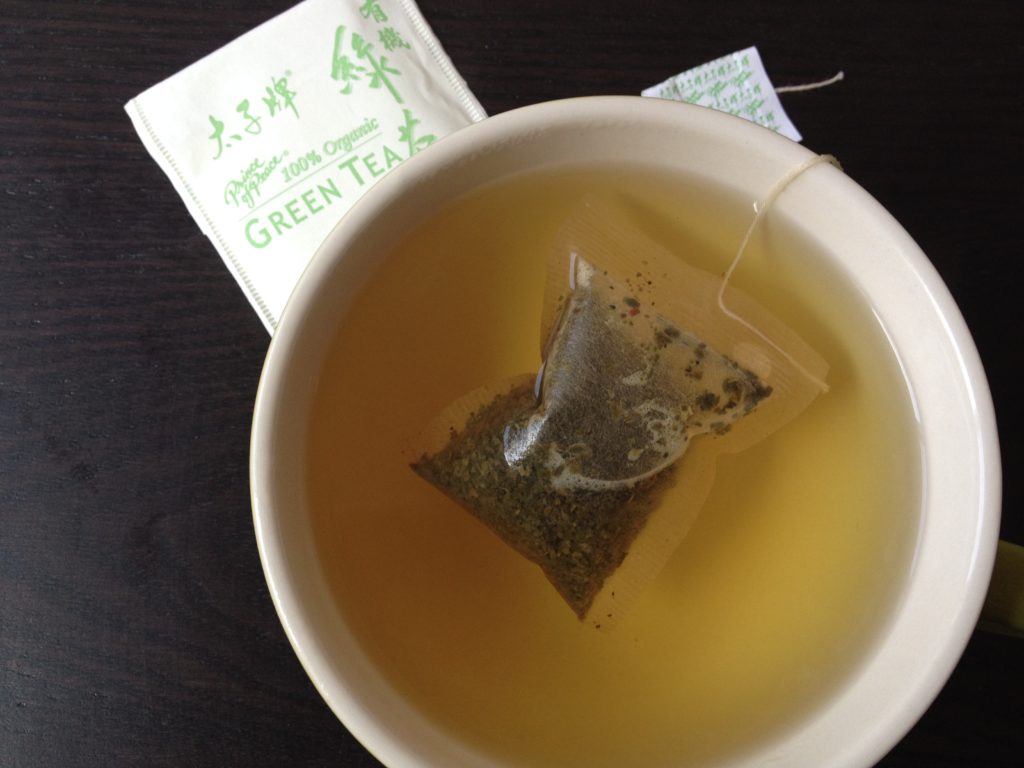Ahh, summertime. All you wanna do is be at the beach or by a pool and sipping something cool and refreshing.
A simple green smoothie
My go to for hot weather is definitely juices and smoothies! Sadly I do not have a juicer and cannot make my own juices (one day I will own a juicer!) but I do have an awesome blender and love experimenting with different smoothie combos. Smoothies and juices are wonderful as you can pack them full of nutrient dense fruit and veg. As much as I love salads and chomping away on fresh fruit, it’s really nice to have a small snack which is full of goodness and also easy to take on the road with me if I have a particularly busy day.
Healthy Juices and Smoothies
Suja ‘Glow’ juice – my fave on the go companion!
‘The Hulk’ juice from Vive Juicery, Salt Lake City – contains blue-green algae!
Although I love both juices and smoothies, there is a slight difference to the two. Juices do not contain the fiber of the fruit which can make it easier on your digestive system, but you obviously do not get the benefits of fiber (which include keeping you full, keeping your bowels moving hehe and lots of other good stuff). Smoothies on the other hand do contain the fiber of the fruit and veg, but they are a little bit heavier on the stomach, but not by much as the fruits and veggies are still easily digestible since they have been blended up. It really depends on your preference whether or not to choose a smoothie over a juice or vice versa, but both are great options. The best way to enjoy a juice or a smoothie is to of course make your own, but time does not always allow! When choosing a smoothie or a juice, the most important thing to look at is the ingredients list. Make sure that the smoothie or juice contains nothing but a dairy or non dairy base, fruits and veg. If you see something like ‘sugar, cane sugar’ or etc, run!! Many juices and smoothies are already so naturally sweet from the fruit in it that there is simply no need to add any more sugar. So avoid brands that do. My juice brands are definitely Suja Juice and Project Juice as they do not have any added sugar in them.
Greenhopping is a fabulous app that lets you locate green juice bars, so definitely make sure to download it when you can.
Turmeric Mylk is so yummy and unique!
Mmm, my fave Project Juice drink
The juice that made me loves beets again 😀
Okay soooo if you want to make your own smoothie, I can definitely help with that. Sadly, I do not have my own juicer but I have found that a lot of juice places let you choose your own blend of juice and what to put in which is really cool.
Anyway, the basics of making a smoothie are:
- the base liquid (this could be water, coconut water, brewed green tea, milk, coconut milk, unsweetened almond milk or another of your choice)
- fruit (I prefer to use frozen fruit in a smoothies; choose away from any fruit such as bananas, strawberries, blueberries. Dates are a yummy addition too)
- vegetables (optional, but makes the smoothie so much better; choose from cucumber, leafy greens such as spinach, kale, romaine lettuce and etc)
- healthy fats (optional; choose from natural peanut butter, coconut oil, avocado, flax seeds, chia seeds and etc)
- protein powder (optional for those looking for a more filling smoothie, I use vanilla whey protein powder)
- citrus (lemon juice, lime juice, oranges and etc)
So there you have it! Feel free to add anything else your heart desires. I have seen some pretty unique additions to smoothies such as spirulina, chlorella and maca powder. The world is your oyster when it comes to smoothies. My favorite smoothie is pictured below and is made up of frozen bananas, unsweetened almond milk, lime juice, spinach, and vanilla whey protein powder topped with fresh mango.
I hope you enjoyed this post! I love making, drinking and buying these healthy juices and smoothies, and I just wanted to share with you all why I loved them as much as I do. If you already make juices or smoothies, what is your fave combination?
Honestly yours,
Alice
